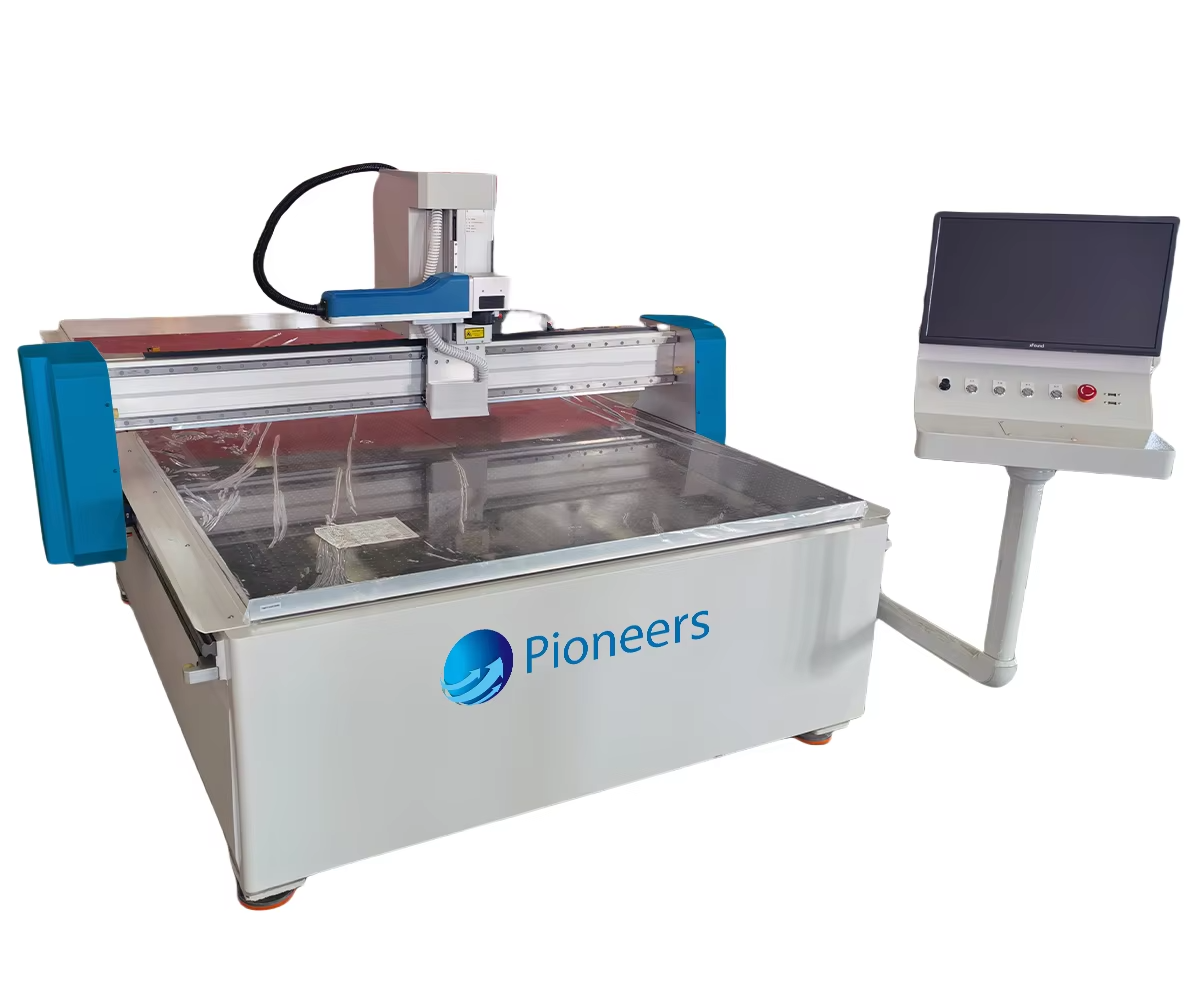Fiber laser etching machines have emerged as transformative tools across multiple industries, combining precision engineering with digital flexibility. Their unique ability to deliver high-contrast permanent markings on diverse materials while maintaining non-contact processing has positioned them as essential equipment in today’s advanced manufacturing landscape.
1. Industrial Manufacturing & Tooling
In heavy industries, these systems excel at creating durable identification codes on steel alloys and titanium components. Aerospace manufacturers rely on them for tracing critical engine parts, while automotive suppliers use laser etching for VIN numbers and compliance labels that withstand extreme temperatures and chemical exposure.
2. Electronics & Microtechnology
The micro-scale precision of fiber lasers (up to 10μm resolution) makes them indispensable for PCB serialization and semiconductor wafer marking. Consumer electronics giants employ this technology for discreet product IDs on smartphone internals without compromising sleek surface finishes.
3. Medical Device Production
Meeting strict FDA and EU MDR requirements, medical manufacturers utilize laser etching for UDI (Unique Device Identification) codes on surgical instruments and implants. The process ensures biocompatibility by avoiding ink contaminants while achieving permanent legibility through repeated sterilization cycles.
4. Jewelry & Luxury Goods
High-end brands leverage the technology’s artistic potential for intricate decorative patterns and anti-counterfeiting features. From personalized engravings on wedding bands to microscopic brand logos on watch movements, fiber lasers maintain product aesthetics while enhancing security.
5. Packaging & Brand Protection
Modern packaging lines integrate laser systems to directly mark expiration dates and batch codes on glass/plastic containers, eliminating label waste. Pharmaceutical companies particularly value this tamper-evident solution for blister pack coding.
6. Renewable Energy Sector
Solar panel manufacturers employ fiber lasers for cell scribing and serialization, while wind turbine producers etch maintenance data directly onto composite materials – a crucial capability for components exposed to decades of harsh weather.
Emerging Applications
Innovators are pushing boundaries with applications ranging from nanostructured surface texturing for enhanced adhesion in EV battery production to artistic architectural metal etching. The technology’s compatibility with Industry 4.0 systems enables real-time data integration for smart manufacturing environments.
Sustainability Advantage
Unlike traditional methods requiring consumables, fiber laser etching operates as a clean process with near-zero waste generation. Modern systems consume less power than standard office equipment during operation, aligning with global ESG initiatives.
As material science advances and laser technologies become more accessible, industry analysts predict a 12.4% CAGR growth in fiber laser etching applications through 2030. From microchip factories to artisan workshops, this technology continues to redefine what’s possible in permanent material marking and precision surface modification.



